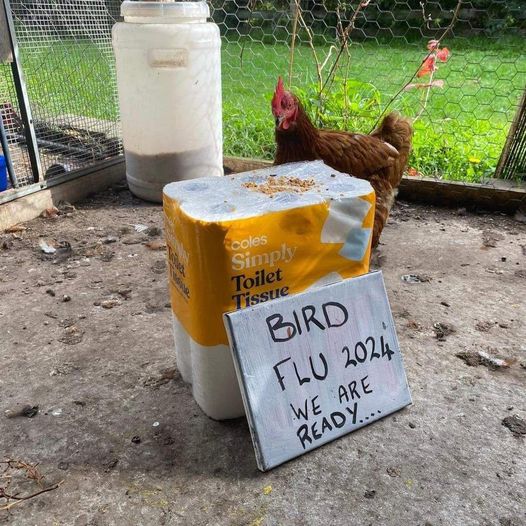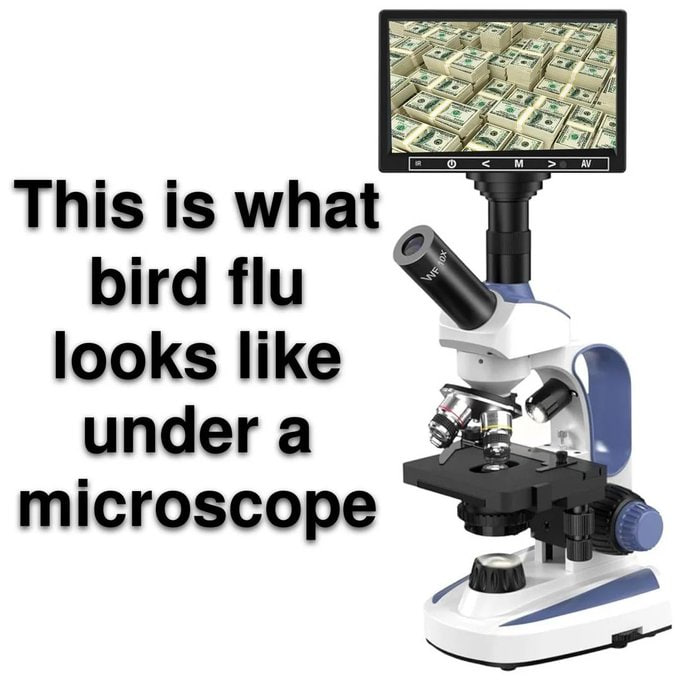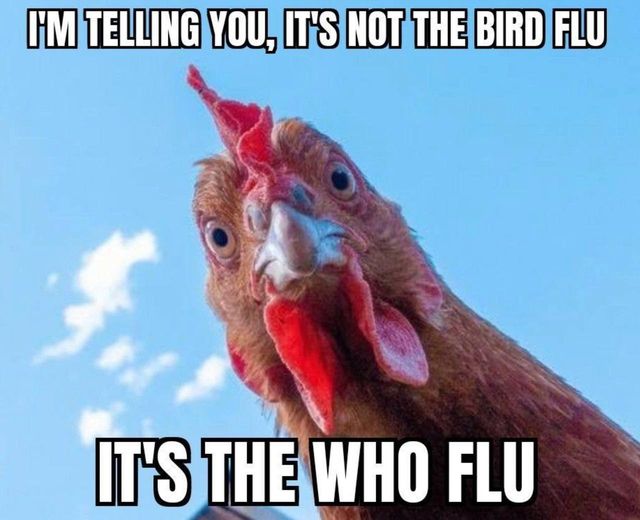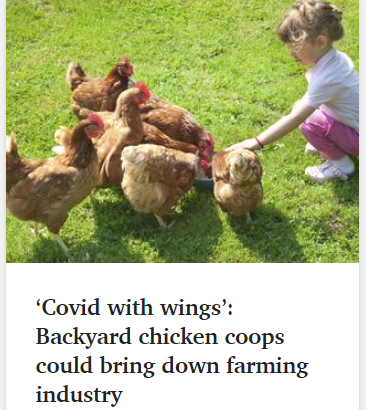Here is an article by the Weekly Times, with the usual ‘experts’ from the universities talking about bird flu, and how this “bird flu could spread quickly through backyard chicken coops.” The problem and the target now are the self-sufficient who are trying to get off the grid.
Is ‘bird flu’ just a pretext to go after the food supply, and self-sufficiency in general?
“Backyard chicken coops could bring down the farming industry, with the August arrival of migratory birds sparking fears the highly pathogenic H5N1 avian flu strain could be difficult to contain, a Queensland infection prevention expert warns.
Egg, chicken, and even beef and dairy farmers are at risk, University of Sunshine Coast’s Dr Matt Mason said.
The professor called the virus ‘Covid with wings.’
‘If we consider this like Covid, where we enforced nationwide lockdowns to try and contain the spread, this is much the same – except all it takes is one infected bird to fly the virus from a backyard to a chicken farm, potentially devastating egg, chicken, and other farming industries on the way,’ Dr Mason said.
While pasteurisation generally deactivates avian flu in milk, and commercial eggs are washed during processing, he said that people who are selling and buying raw milk and farm eggs needed to be more vigilant.
The infection control lecturer said farmers were relying on the vigilance of backyard bird owners.
He advised people with backyard flocks to ensure their footwear was clean, washed their hands before and after handling birds or eggs, quarantined new birds before integrating them with their flock, limited exposure of their flock to wild birds, cleaned eggs before using them and avoided contact between their birds and family pets.
‘Those with backyard flocks should be vigilant to the signs of illnesses in their birds.’
‘If they suspect avian influenza within Queensland they should contact the Queensland Department of Agriculture and Fisheries immediately, or the Emergency Animal Disease Watch Hotline or their local veterinarian,’ Dr Mason said.“




